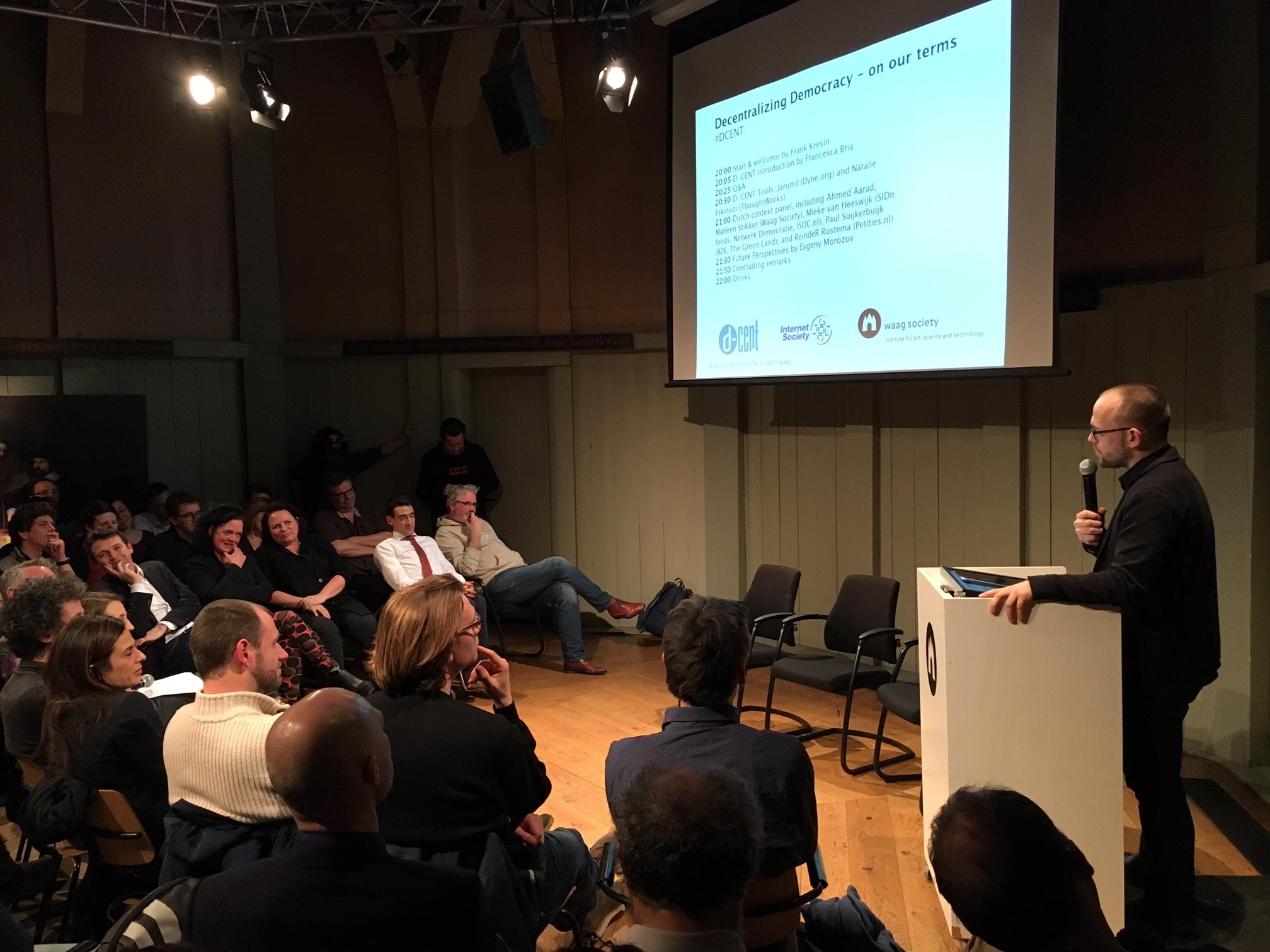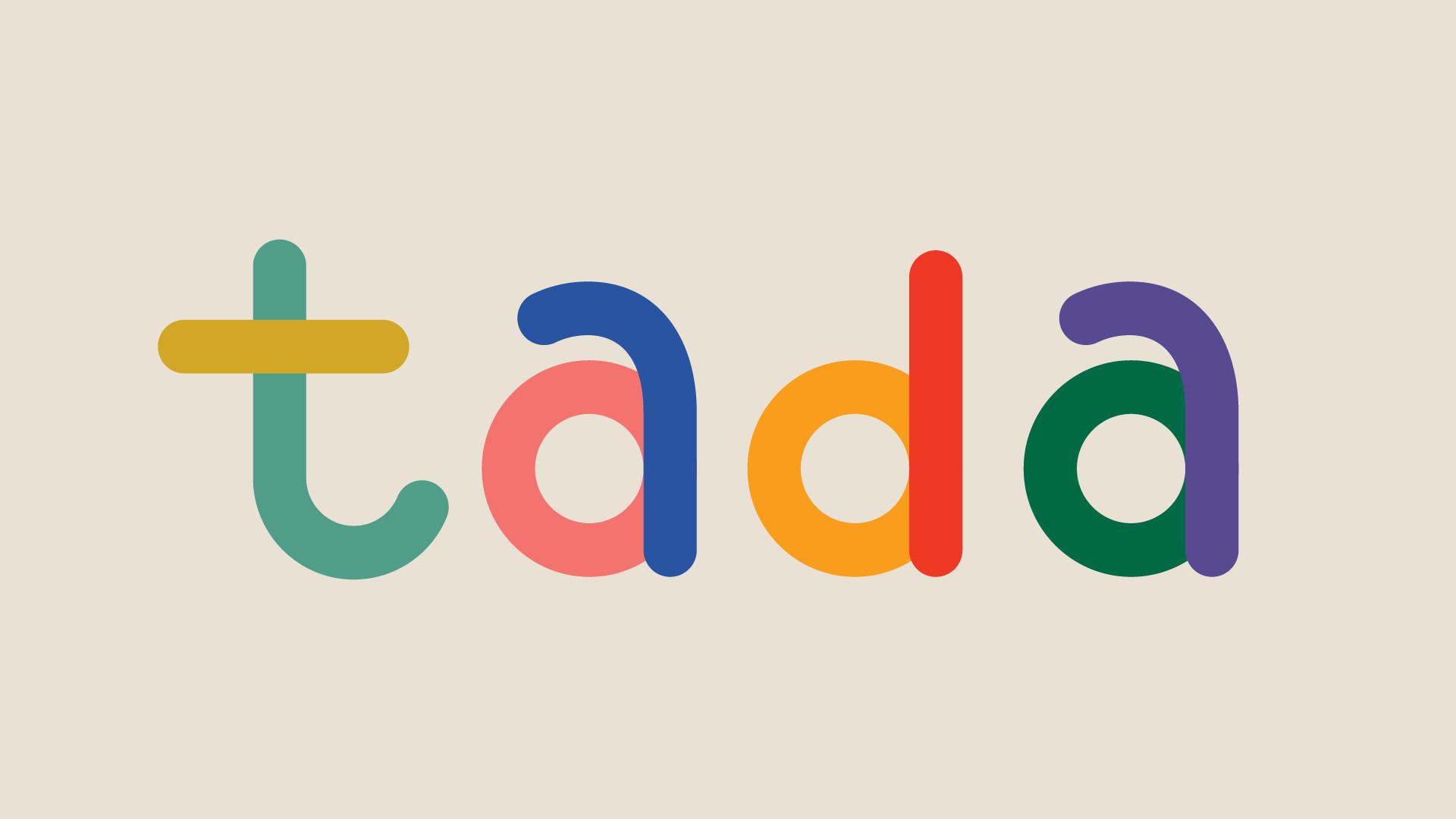The presence of publicist and Internet sceptic, Evgeny Morozov, was just one of the reasons why the Theatrum Anatonicum was filled to the brim last week. The European project D-Cent, Decentralised Citizens ENgagement Technologies and the refreshing views of Francesca Bria provided the audience with inspiring perspectives on the use of technology for societal and democratic goals. The event was truly at the core of Waag’s topics and beliefs. D-Cent, together with Waag and Internet Society Nederland
Francesca Bria, the driving force behind D-Cent, introduced the project with some striking examples from crowd-sourced legislation to online referenda. At the moment, D-Cent runs large-scale pilots all over Europe to test their tools in practice. Jaromil and Natalie Eskinazi, both connected to D-cent as well, explained some of technical features that the D-Cent platform developed (like FreeCoin, a social digital reward scheme that is transparent and auditable).
From deliberative democracy, the discussion shifted to the broader topics of open data and technology and governments, during which the ‘Polder Panel’ took the stage to explain their views. Marleen Stikker (Waag), Ahmed Aarad (Open Source & Government), Mieke van Heesewijk (Netwerk Democratie), ReindeR Rustema (petities.nl) and Paul Suijkerbuijk (Open Data Nederland), to some extent, all agreed on the need for more open technological solutions for deliberative projects. They all came to the conclusion that in the Netherlands, we still have huge steps to take. Apart from the agenda-setting platform, petities.nl, there is, unfortunately, not much adaptation to open technological deliberative democracy here.
After these interesting and sometimes entertaining discussions about decentralized democracy on our own terms, it was time for the another guest to take the stage. Evgeny Morozov, who travels the world to explain his views on the Internet, technology, and the opportunities and danger for democracy these often entail. Silicon Valley often serves as a focal point of this critique because, as Morozov says, 'If you live in California and develop an app that gamifies the cleaning up of dog shit, people think you’re a brilliant start-up. Why?' He argues that the digital hammers of Silicon Valley make all problems looks like nails, and all solutions look like apps.
During the event, Morozov noted that he wasn’t planning on bashing everyone—namely because he admitted he'd already done enough of that. 'I’ve criticized and bashed so many people—maybe even members of your family', he quipped. Instead, he took the opportunity to test a new set of ideas he recently linked together in a way he had not yet explained publicly.
The first crisis is the one of institutions, knowledge and data. Morozov explains that, on the one hand, governments and other institutions try to limit the access to sensitive and power-subversive data, while on the other hand, technology makes access such data esier every day. Examples like WikiLeaks (and also the recent discussion about TTIP) show that the technology has brought this knowledge closer to citizens, which feeds their distrust in the institutions and results in the widening gap between politics and society we see today.
The other crisis we suffer at the moment can be explained partially from historical perspective. After the Second World War, social democratic societies started to build up the welfare state based on solidarity and trust. These days, technology imposes more individualistic and neo-liberal ideas that result in the slowly emerging belief that we no longer need our governments. With this trend, you see people ‘opting-out’ of society, which greatly endangers society and the welfare state as we’ve known it for a long time.
Altogether, this is not the most positive image of the future, Morozov admits. But there is hope—if only just a glimmer. Morozov believes that if the crises he's described were to take longer and grow wider, people will turn to more decentralized, bottom-up possibilities (such as those developed in projects like D-Cent). Then people will use technology built from their own beliefs, interests and opinions. With what looks like a dark future ahead of us, this is a small sparkle of hope. So let’s hold on to it!


